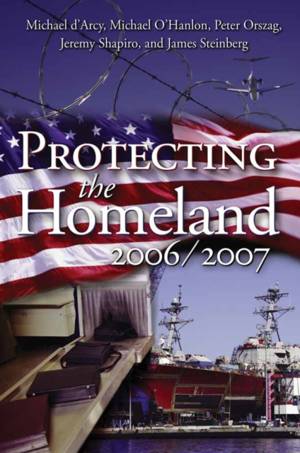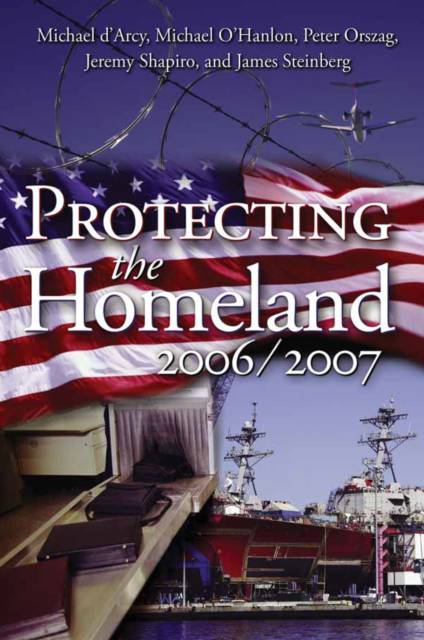
- Afhalen na 1 uur in een winkel met voorraad
- Gratis thuislevering in België vanaf € 30
- Ruim aanbod met 7 miljoen producten
- Afhalen na 1 uur in een winkel met voorraad
- Gratis thuislevering in België vanaf € 30
- Ruim aanbod met 7 miljoen producten
Protecting the Homeland 2006/2007
Michael D'Arcy, Michael E O'Hanlon, Peter R OrszagOmschrijving
Immediately after September 11, the Brookings Institution began a comprehensive, multidisciplinary project focused on the key policy challenge of these dangerous times--assessing and improving homeland defense. That intense effort produced Protecting the American Homeland, and it continues in this important new book. In Protecting the Homeland 2006/2007, Brookings foreign policy experts analyze current homeland security concerns and the adequacy (or inadequacy) of current policies designed to address them. The authors present both the big picture and the smaller components of homeland security policy that make up the whole. They make specific recommendations on intelligence reform, science and technology policy and the protection of critical infrastructure within the United States. They also look ahead to consider what dangers we should anticipate and plan for, recommending policies that will work to that end. One of the strands running through Protecting the Homeland 2006/2007 is the need to ""stitch the seams"" in our homeland security blanket through greater integration and coordination. The authors emphasize that the U.S. federal government must work together with key partners who have been insufficiently integrated into American homeland security activities to date. These actors include foreign governments, state and local government, and the private sector, and the coordination must occur in several different areas (e.g. border protection, finance, technology, intelligence). The U.S. government should not--indeed, it cannot--do it alone. By its very nature, homeland security is a problem that defies the usual bureaucratic boundaries. Effective homeland security policy demands intense collaboration on new issues and between organizations that have not traditionally needed each other. This book is of interest and importance to journalists, analysts, policymakers, scholars, and citizens concerned with protecting their homeland against terrorism and r"
Specificaties
Betrokkenen
- Auteur(s):
- Uitgeverij:
Inhoud
- Aantal bladzijden:
- 230
- Taal:
- Engels
Eigenschappen
- Productcode (EAN):
- 9780815764595
- Verschijningsdatum:
- 10/04/2006
- Uitvoering:
- Paperback
- Formaat:
- Trade paperback (VS)
- Afmetingen:
- 154 mm x 229 mm
- Gewicht:
- 317 g

Alleen bij Standaard Boekhandel
Beoordelingen
We publiceren alleen reviews die voldoen aan de voorwaarden voor reviews. Bekijk onze voorwaarden voor reviews.








